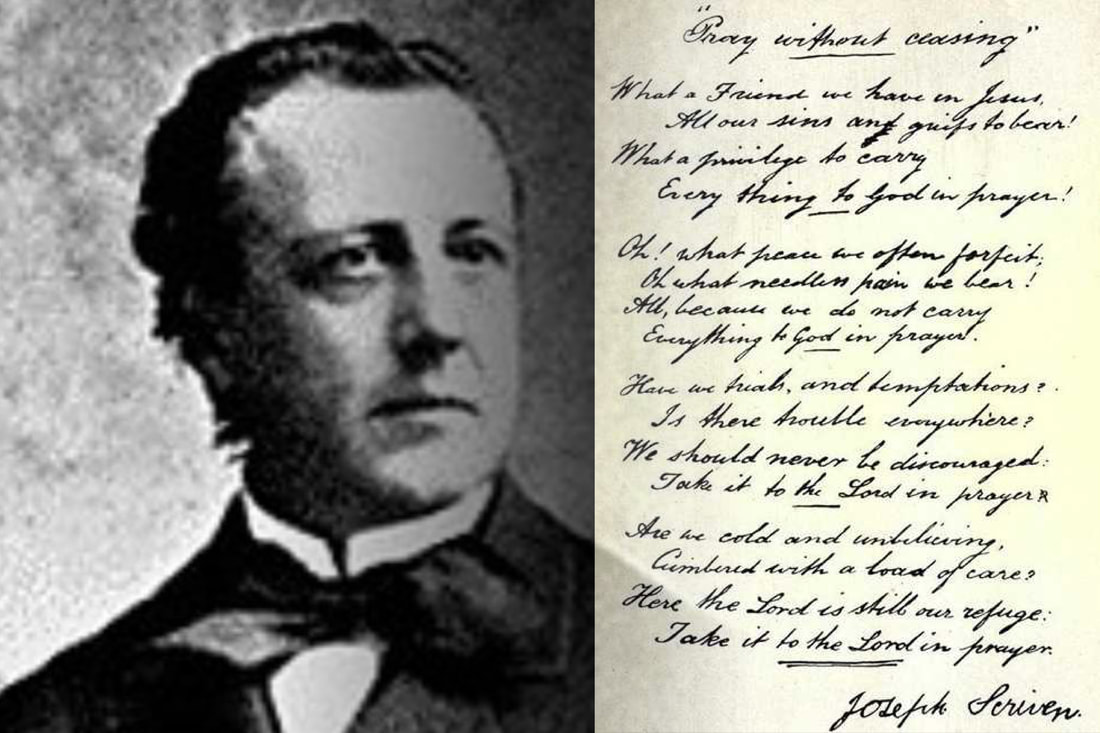|
Pastor, evangelist and author, Alan Redpath, once said, “There is no circumstance, no trouble, no testing, that can ever touch me until, first of all, it has gone past God and past Christ, right through to me. If it has come that far, it has come with great purpose.” You know, life can deal us out a lot. More often than not the available space on our plate is already at a very sparse minimum, and we are already convinced of our inability to coordinate even one more small task. And then God allows more, and the allowance isn’t always tolerably small. The little phrase “but God…” is often used in the context of God sweeping in with abundant grace, mercy and provision to “fix” a bad situation. However, it may be less utilized in a sentence like this: “My plate was already full, my emotions were already tattered, my faith was already shaken, and I could not bear another load--but God unexpectedly added ______________.” It’s important to know that a loving God will absolutely test our tolerances. We like for God to rush in mightily with the supernatural help and resources needed to bring resolution and peace to formidable situations in our life, but we like it much less when God sweeps in and heaps unexpected challenges and difficulties into a life and schedule that may be, by our own evaluation, already pressed to the limit. As of late, my own plate has been pretty full. My father passed away in April of 2022. Shortly after that, my wife and I packed up our house, sold it and moved. Then, almost immediately, God moved me to a new church. All the while, I’ve been battling with a very painful pinched nerve which has brought a halt to many things in life that I enjoy. It's been a tight schedule of P.T., chiropractor visits and now I have a second MRI scheduled this week—one that I pray will lead directly to the corrective surgery needed in this situation. Between my own doctor appointments, we now add that my precious mother is awaiting some test results. We’ve been busy, but it’s not as much physical busyness as it is mental busyness, and for me, constant nerve pain. It’s been draining. It continues to be draining, but God continues to be good. Recently, I’ve found that Scripture brings a much greater worth of comfort to me than it has in past years. I believe there are two reason behind that fact. The first is that I’m hopefully growing in my walk with Christ. The second is that I’m older, and God has had more years to “put me through some stuff.” How comforting it is to know that all of that “stuff” has been vetted by God Himself. The minute details of every difficulty has been thoroughly examined, weighed and measured by a God who has then allowed into my life for purpose. Let’s quickly look to Scripture… Psalm 119:71-72 says, “It is good for me that I was afflicted, that I might learn your statutes. The law of your mouth is better to me than thousands of gold and silver pieces.” Eugene Peterson translates this wonderfully in the Message.” He says, “My troubles turned out all for my best. They forced me to learn from Your textbook. Truth from Your mouth means more to me than striking it rich in a gold mine.” There’s a richness in the lessons of “affliction” and difficulty that money (or a gold mine) can not purchase. Understanding the fact that God uses everything in our life to focus us on Him, we should be encouraged when difficulty comes to fill our plates. That's a tough feeling to embrace when walls begin to close in around you, but when that happens, we should immediately begin looking for God's purpose. God always has a purpose, and in that purpose, we always have an opportunity. Pastor Rick Warren once wrote something like this: "Life is series of problem-solving opportunities which will either develop you or defeat you, depending on your response to them." He then went on to list 5 ways that God wants to use difficulties in your life. From my best memory they are as follows: God wants to use problems to DIRECT you, INSPECT you, CORRECT you, PROTECT you and PERFECT you. I’m sure you can search online to find his resources, but the information that I have recalled brings some positive light to situations that may often seem just a little too much at the moment. Isn’t it good to know that God has already looked through every situation that He allows to transpire in our life? The journey that those difficulties must take as they travel through God’s meticulous vetting and then on to us, being strategically implanted into our life at just the correct moment, should clarify that they hold a place of great importance in God’s ultimate plan. Difficulties are opportunities to find God and learn from Him. Friends, be encouraged that God has good plans for you, and I pray that you understand the sovereign authority that God wields in allowing the difficulties that interrupt our schedule and possibly even steal our peace. Nothing enters our life without sovereign permission. Don’t neglect to find the beauty of God’s goodness, often coming to us initially disguised as struggle. That struggle has made a great and long journey, and it arrives with even greater purpose.
1 Comment
Insecurity is painful, and insecurity can damage almost everything it touches. Unfortunately, it can be a common issue challenging many who walk among us, and thereby, it becomes an issue for those who don’t battle the personality trait themselves but must interact with those who do. However, let’s be sure to understand that we all most likely suffer from some form of insecurity, so don’t develop any high and mighty feelings of superiority over someone who is struggling. Insecurity in others has touched my life and the life of my family in more ways than I’m comfortable with in recent years. In some cases, I addressed it directly, and in other cases I didn’t address it at all, although I probably should have. However, some battle are just not worth fighting. For the sake of sanity, it’s often best to walk away. And, I did. But, those years have caused me to do some research on the subject of insecurity and the toxic traits that can often pour forth from the life and actions of an insecure person. Insecurity is characterized by feelings of inadequacy, low self-esteem and a diminished view of their self-worth, although everyone suffering from insecurity doesn’t display those feelings in ways that we might think. Read on. Jennifer Guttman, Psy. D., says: “...it’s estimated that roughly 85% of people worldwide (adults and adolescents) have low self-esteem. Low self-esteem has been linked to violent behavior, school dropout rates, teenage pregnancy, suicide, and low academic achievement. The World Health Organization (WHO) reports that more deaths are caused by suicide every year than homicide or war.” (Jennifer Guttman, Psy. D, “The Relationship With Yourself,” Psychology Today, June 27, 2019) Insecurity drives damaging and even dangerous behavior. Common personality traits of insecure people can be negative self-talk or self-depreciation, but insecurity can also manifest itself outwardly and into the lives of others. It can reveal itself in jealousy, approval-seeking behaviors, bragging, flamboyant narcissism, competitiveness, obnoxious bullying, a negative mindset toward seemingly everything they encounter that is “not their idea” and outright aggression towards others. Insecurity can often bring about unnecessary drama and toxicity into the lives of those who must engage with those suffering from this increasingly damaging personality trait. But, how do we deal with this? Should we deal with this? First off, we must call it out for what it really is—a problem, and in most situations, I would say that we should confront it. The confrontation is hard, because it will most likely not be well received, and discussing it in a way that promotes peace, love and understanding can be difficult. I’m not an expert at anything here, but my own research in both Christian-based and mainstream psychological studies has led me to the following conclusions: We Must Hear Them Out Let the insecure among us talk, regardless of the conversation; give them space to breathe; and let them air their narrative. Dismissing an insecure person could possibly make the situation worse and add to their own insecurities. No one responds well to being “dismissed” from the conversation. Instead, include them, but regardless of whether they venture into self-deprecation or extreme narcissism (or anything in between), the insecure elements should then be identified, examined and prayed over, and a decision should be made whether their actions are detrimental to themselves or others to a degree that they need to be addressed. If they do, then address them. Looking the other way may only serve to empower and escalate the same behavior. Wait For The Right Time The correct time to confront an insecure person may not be in the middle of a display of insecurity. If emotions are running high, then it would almost always be more fruitful to wait to address your concerns with them. I would say a private conversation, at least initially, is not only more productive but also a display of Christ-likeness. Private conversations may lead them to open up and reveal some of the more relevant issues that are causing them to display a behavior that is damaging to themselves or others around them. Addressing it publicly could be viewed as an attack and cause a bad situation to spin out of control. The goal is to help, to heal and to unify. If you’re going to address damaging behavior, be sure that you’re doing it at a moment when your own mind is calm, collected and seeking to understand and help. Understand the Process Understand that you’re not their savior, and your confrontation of the situation may not be the counseling they necessarily need to hear. You may not be the person God has called to counsel them through this difficulty and truly help them, but God has someone who can. Point them in a direction toward people who can help. Never have the expectation that calling out bad behavior will change it immediately. There’s a process involved that is probably greater than your intervention. Pray diligently that God would lead them to people who will genuinely understand, care and engage them with love and grace. In turn, you show love and grace while the process takes place. Create Healthy Boundaries Each of us needs to examine our definition of healthy boundaries, for our own happiness and personal mental health. On the more docile side of insecurity—if an insecure person constantly seeks validation from you, this can distract you from things in your life that are more important. Frankly, it can also lead you to develop a little of your own personal brand of narcissism, so be careful. On the more damaging side—if insecurity is leading someone to be personally aggressive towards you, or if they develop into a bully or narcissist, then you must examine how much of that behavior you intend to tolerate, based on your boundaries. There’s a saying that “What you allow is what will continue.” I believe this to be true in every sense of the word. Don’t allow the insecurity of others to take command of your mind, your life, or your organization. If healthy boundaries can exist, then they need to exist. Determine your boundaries, and clearly communicate your boundaries and tolerances. Know When to Cut Ties If you’re reading my blog, you probably identify yourself to be a Christian, and I hope you do know Jesus. Scripture tells us to have love and compassion for others, even our enemies. It’s hard for a follower of Christ to eliminate another person from their life, because we feel it violates our call to be Jesus to our world. However, the sad truth is that there are people among us who are toxic, and they simply don’t want to be any other way. When this is the case, there is a time to cut ties with them. Even God, in Romans 1:28, gave some over to a depraved mind—those who thought the knowledge of God was not worthwhile. Don’t pursue a relationship that is grounded in toxicity. You don’t have to. Pray for them, love them, but understand that there may come a time for you to move on. Luke 6:27-28 tells us, “…Love your enemies, do good to those who hate you, bless those who curse you, pray for those who abuse you.”
If all of the aforementioned fails to bring an understanding or change of behavior, then walk away. We can’t effectively fight every battle that rages inside of another person’s mind, even if their own battles spill over into our personal lives. And, do it all with a mindset of love, constantly looking for an opportunity to reconcile that relationship with the same grace that Christ has reconciled us unto God. Joseph Medlicott Scriven (1819-1886) was born in Seapatrick, Ireland and died in Ontario, Canada. He was a man of some wealth and he had the sincere heart of a servant. Joseph was a selfless person by nature, always looking for ways to serve others. He could often be seen walking through the streets of Lake Rice, Canada carrying a saw and sawhorse. Some would attempt to hire him to cut wood, but he would only offer his services for free, to those who could not afford the work. He was born on September 10, 1819, in Ireland to a family of who possessed the financial means to send him to Trinity College in Dublin. He attended classes there before joining the military, training for service in India. Because of poor health, he resigned his military ambitions and returned to Trinity College where he graduated with a bachelor’s degree in 1842. Early in life, Joseph Scriven fell in love. The relationship led to a marriage proposal, which was readily accepted. The preparations for the ceremony were made, and everything was ready. On the evening before the wedding, his fiancé was crossing a bridge over the River Bann. She fell from horse and accidentally drowned. Joseph was on the other side of the river and witnessed the accident; however, he could do nothing but helplessly observe the incident. Full of sorrow and grief, Joseph began to wander. Around the age of 25, he found himself in Woodstock, Canada West (Ontario). Around 1844, Joseph was tutoring students, preaching and working among the impoverished. He would often serve and refuse compensation for his efforts. He was a viewed as a valuable and cherished member of that community. In 1857, he relocated to Bewdley, where he met and fell in love with Elisa Catherine Roche. Their relationship deepened and a wedding was planned. Sadly, in 1860 Elisa died of pneumonia before they could be married. Joseph Scriven’s life was full of tragedy. He was familiar with both love and loss, but he had a relevant relationship with Jesus. At one point, Joseph become ill, and while visiting with him, one of his friends discovered a poem at his bedside. When the friend inquired who had written the poem, Joseph replied, “The Lord and I did it between us.” It was never Joseph’s intention for anyone to see the poem but his mother. He had written the poem out of the pain and grief of his past experiences, and he intended to send it to his mother, who still lived in Ireland, to comfort her in her own sorrows. It’s uncertain how “What A Friend We Have in Jesus” (Pray Without Ceasing) first became published. For many years it was printed with authorship unknown, or incorrectly attributed to Dr. Horatius Bonar. Regardless, it did become known and it became popular. Samuel Caswell (1861-1938) published an early manuscript version that was signed by Scriven. Of the hymn, Caswell stated that it was “beyond question the best-known piece of Canadian literature.” (Macpherson, “Scriven,” n.d.). Stanza 1 is an establishment of the fact that Jesus is our friend, and that He can and will bear our burdens. Stanza 2 asks two rhetorical questions. The are rhetorical because all of us, all of humankind, suffers from “trials and temptations” and become witness to “trouble.” The second stanza then answers the questions in the short refrain, “Take it to the Lord in prayer.” There’s also a third rhetorical question asking, “Can we find a friend so faithful…?” It’s an intimate friendship with the One who indeed “knows our every weakness.” The refrain returns to give the solution, “Take it to the Lord in prayer.” Stanza 3 simply reframes the premise of the song using different questions, “Are we weak and heavy laden, cumbered with a load of care?” And, “Do your friends despise, forsake you?” The answer to all the questions returns with the famous refrain, “Take it to the Lord in prayer.” The song ends with Jesus wrapping His arms around His friend—who is us. Hymnologist Fred Gealy found and additional stanza which was published in Hastings’ Songs of Pilgrimage: A Hymnal for the Churches of Christ (Boston, 1886; Second Ed. 1888) with a fourth stanza, which I will present below: Blessed Jesus, Thou hast promised Thou wilt all our burdens bear May we ever, Lord, be bringing All to Thee in earnest prayer Soon in glory, bright, unclouded There will be no need for prayer Rapture, praise, and endless worship Shall be our sweet portion there Jospeh Scriven died in October of 1886. The Dictionary of Canadian Biography describes all that we know about the circumstances of his death: His last days were clouded with ill-health and despondency. James Sackville, his friend and fellow-believer, found Scriven ill and brought him to his house. One hot night in 1886, Scriven left his bed without disturbing anyone, probably to drink at a nearby spring: some hours later, presumably having fainted or fallen, he was found dead in the spillway of Sackville's grist-mill, a few feet from the spring. He was buried in the Pengelly burial-ground in an unmarked grave between Eliza Roach and Commander Pengelly. (Macpherson, “Scriven,” n.d.). Only a few days before Scriven’s death, Sackville encountered Scriven thoroughly dejected. At this meeting, Scriven told his friend that, “I wish the Lord would take me home.” (Cleland, 1895, p.17) It was never fully determined if Scriven’s death was natural, accidental or a suicide. Jesus was a friend to Joseph Scriven, and it was obvious that through a lifetime of service to God, Scriven experienced some deep tragedy. If the closing thoughts of his life are recorded correctly by Scriven’s friend, then Jesus did indeed come and take him home. Like many other disciples of Christ who have gone on before us, including my own father only a few months ago, Scriven now understands more deeply about the friendship of Jesus and the magnificent “Precious Savior” who is “our refuge.” And, as the mostly unpublished fourth stanza puts forth, they are all involved in “praise and endless worship,” which is “out sweet portion there.” Sources: Jay Macpherson, “Scriven, Joseph Medlicott,” Dictionary of Canadian Biography (Vol XI (1881–1890) James Cleland, What a Friend We Have in Jesus and Other Poems by Joseph Scriven with a Sketch of the Author (Port Hope: W. Williamson, Publishers, 1895) |
AuthorKeith Beatty is a Worship, Missions and Media Pastor living in North Alabama. He's excited and very humbled to be a follower of Jesus Christ! Archives
April 2023
Categories |






 RSS Feed
RSS Feed